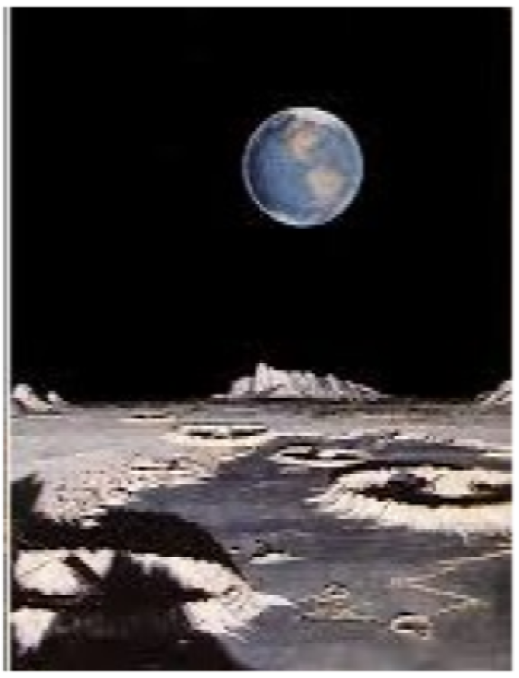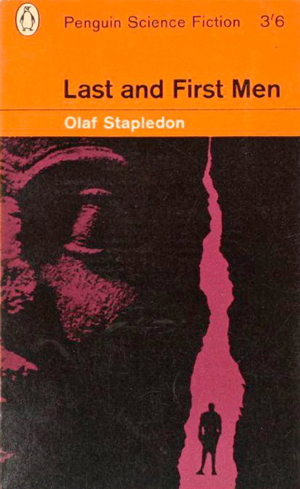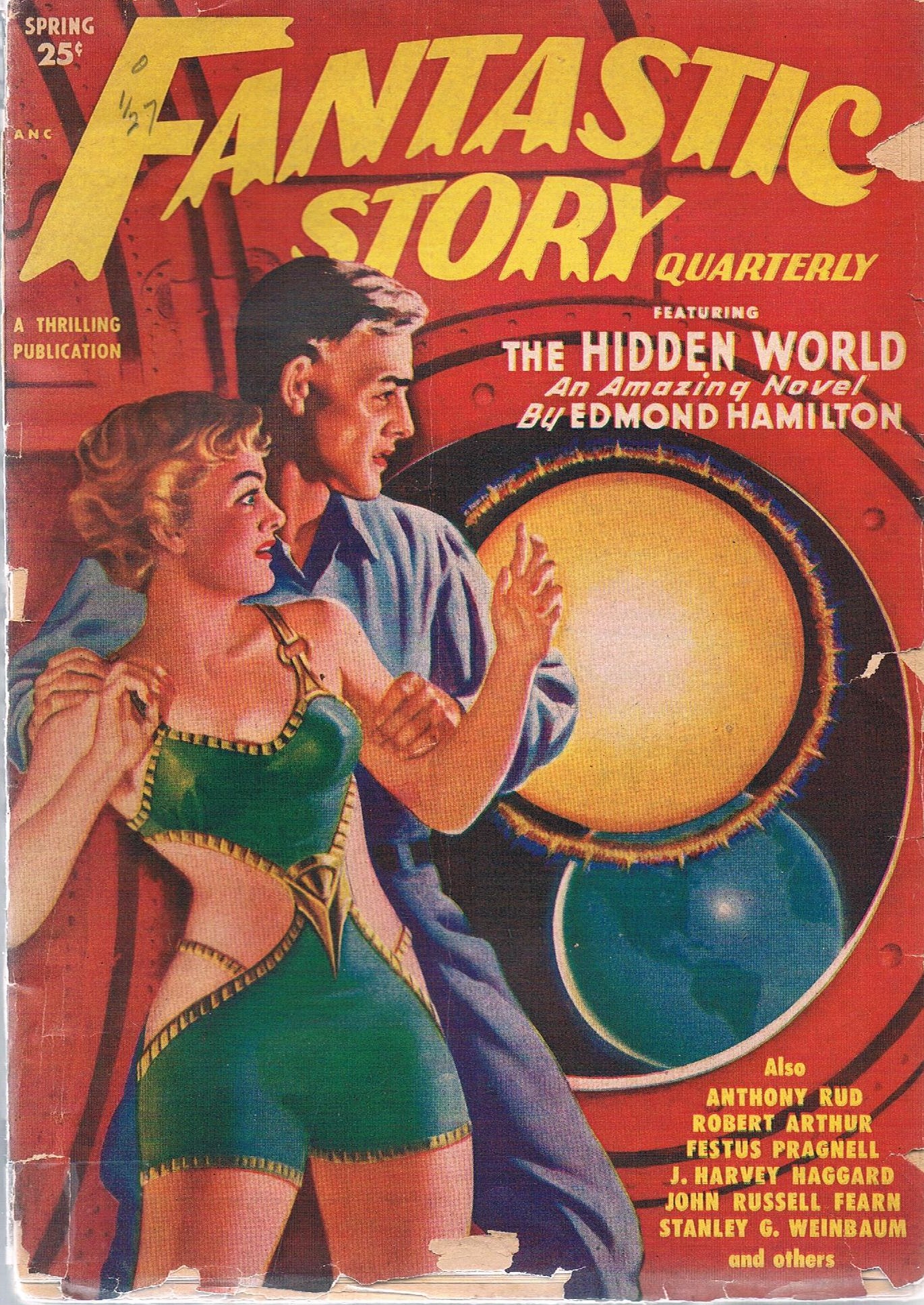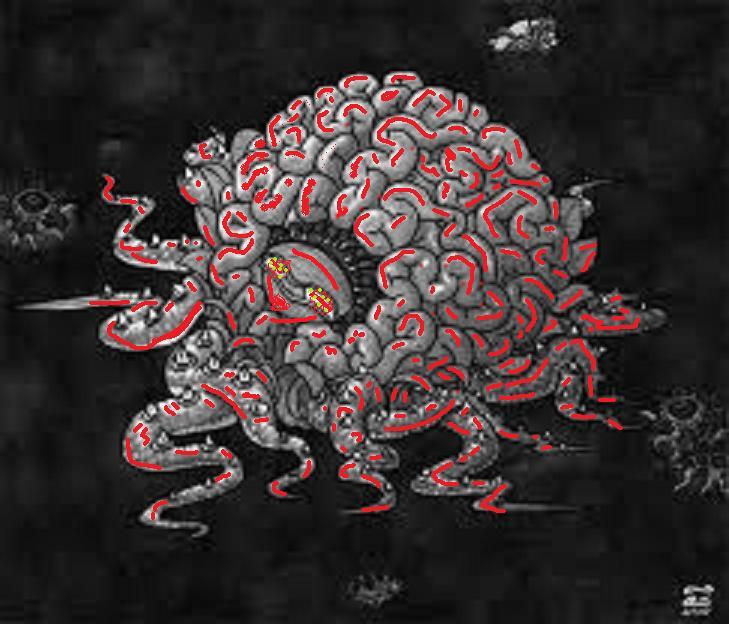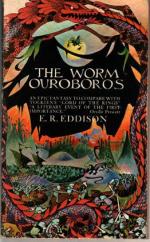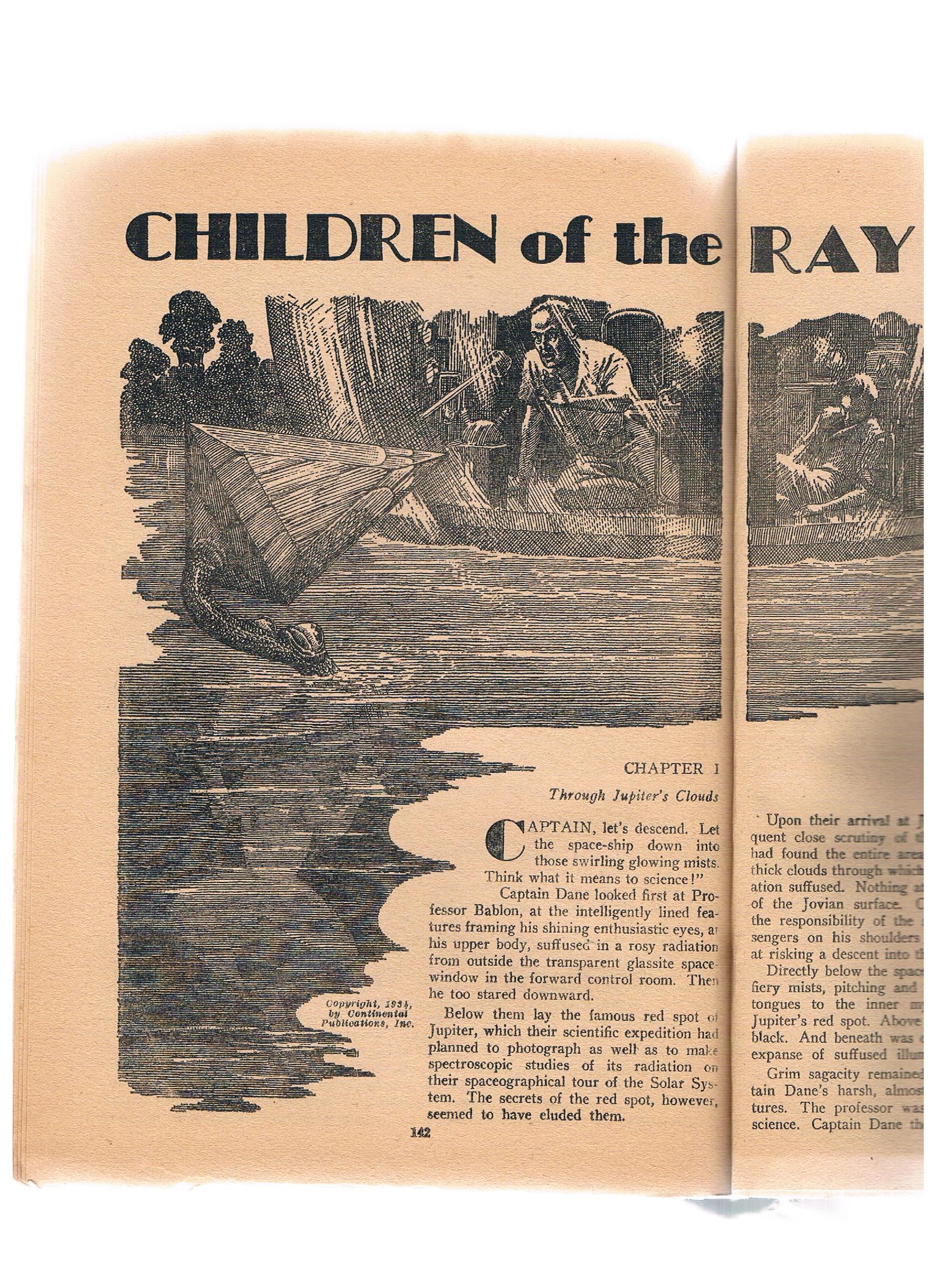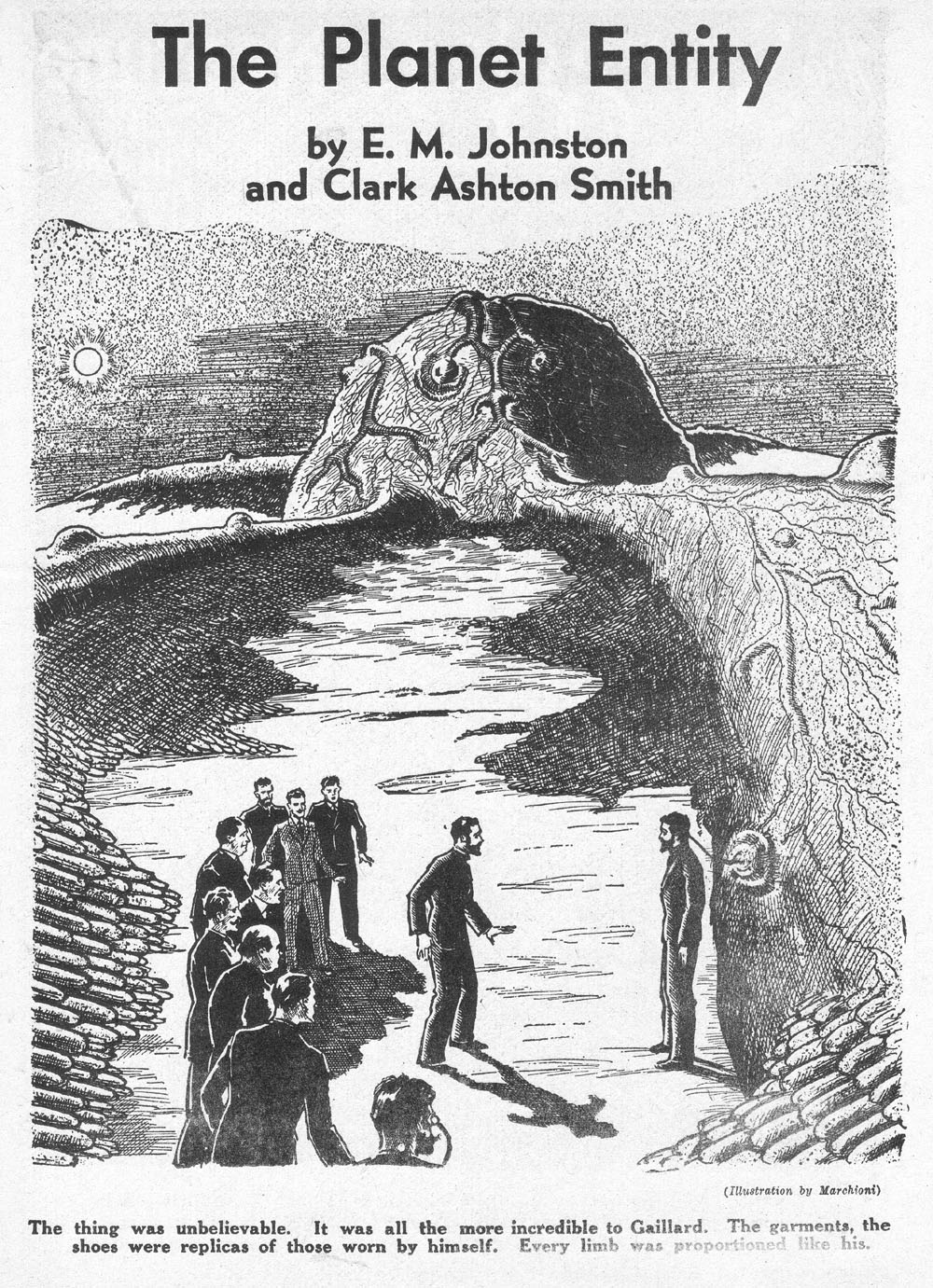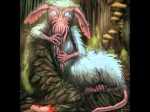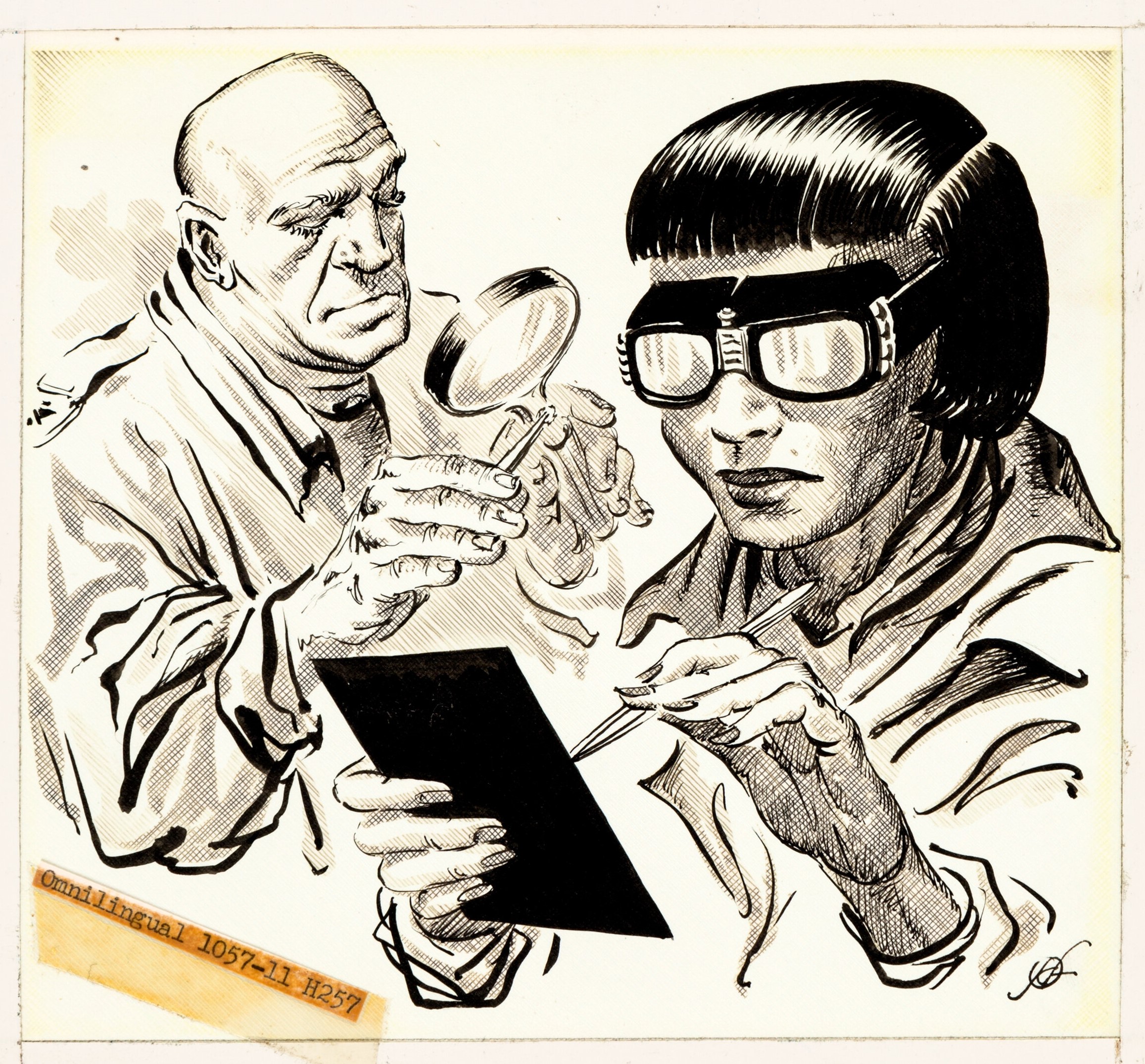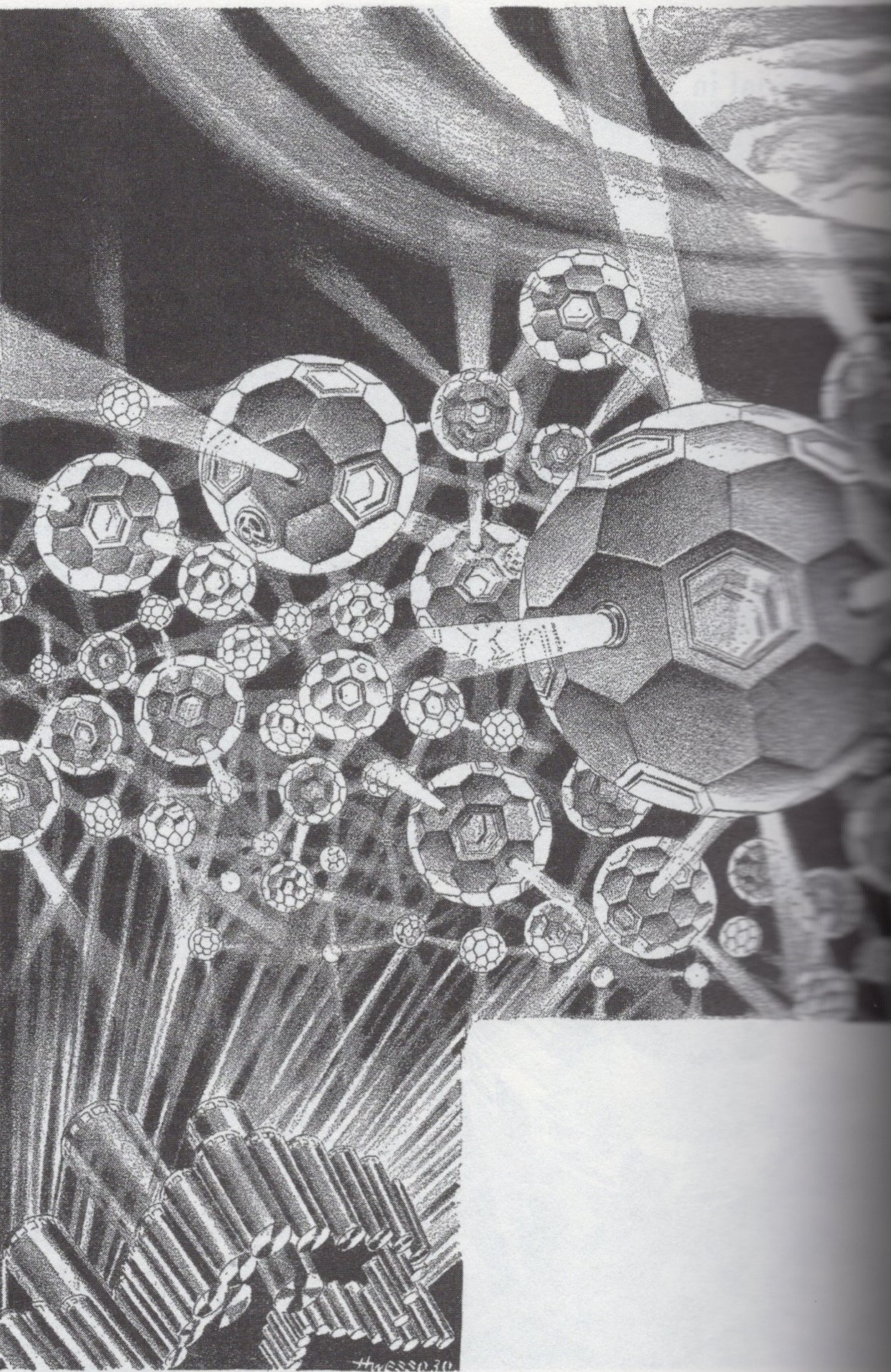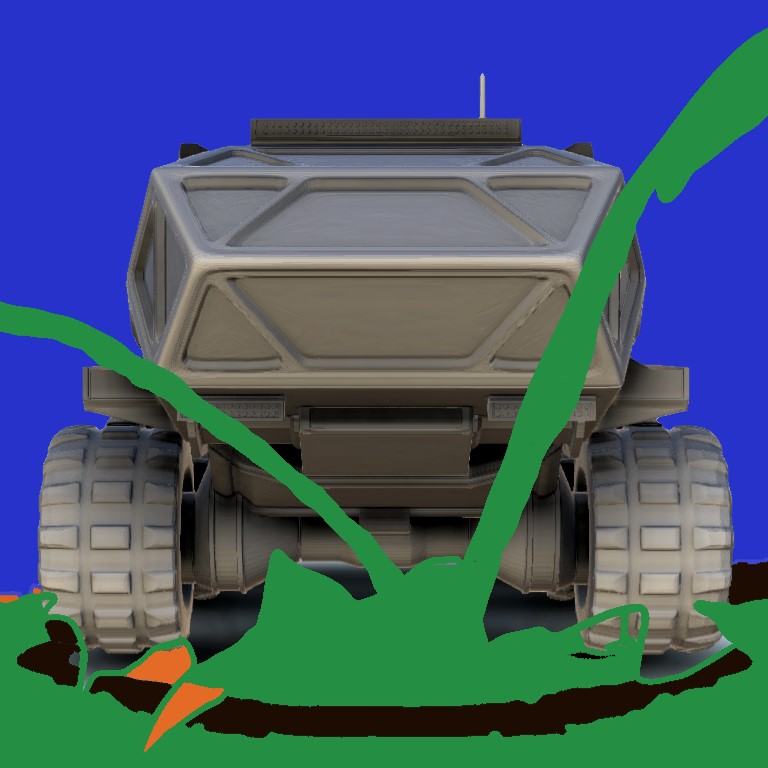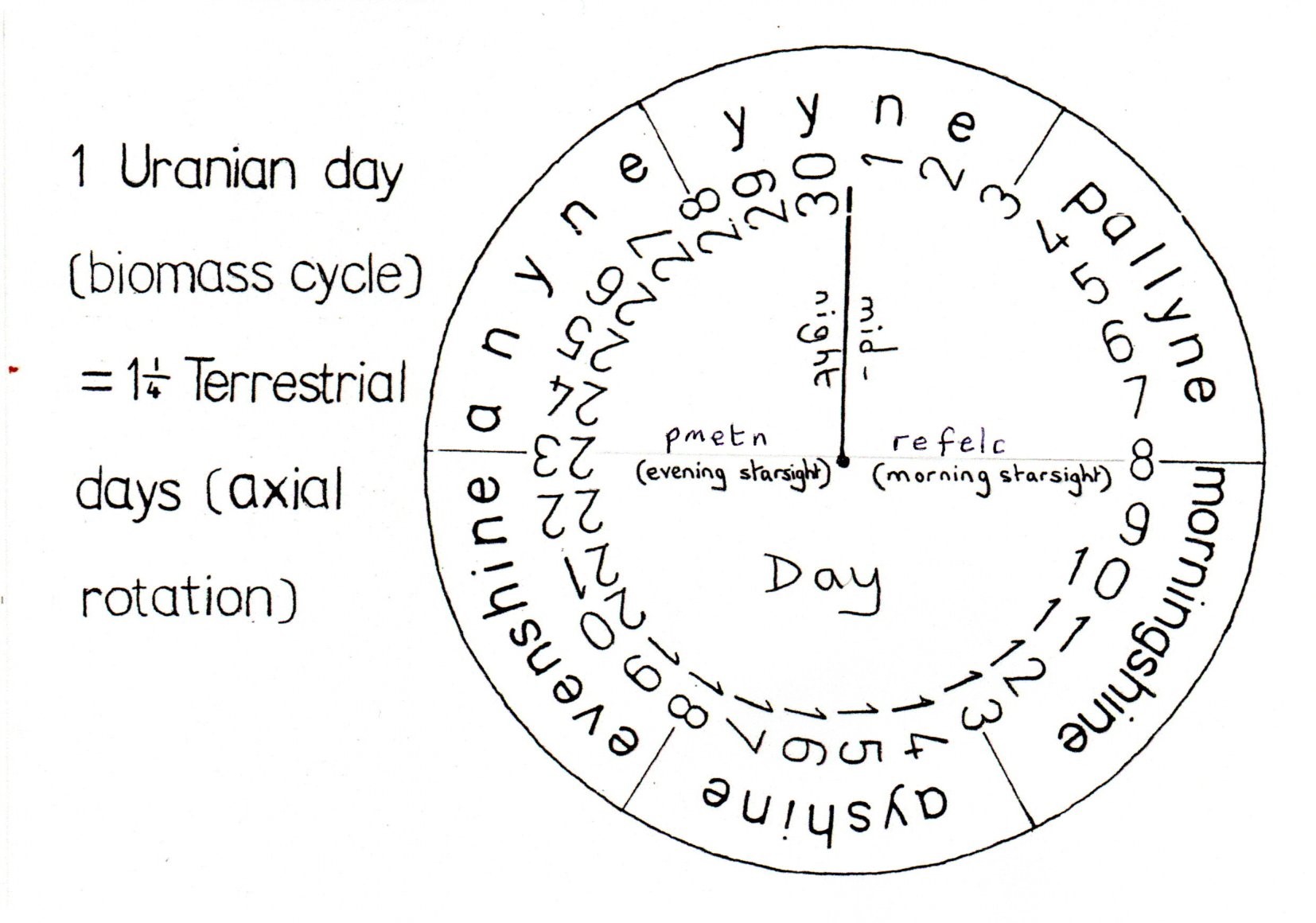- Home
- Your Views
- Twelfth and final part of The Archives of the Moon
Twelfth and final part of The Archives of the Moon
by Robert Gibson
(Lancashire, England)
XII
In the aureate glow of Yyu’s System-wide Empire, rivalries between the ancient swarms had never wholly died out. Feuds still marred the imperial peace upon Yyu itself, and since the cities still possessed a great degree of autonomy, actual outbreaks of limited war were not unknown.
These disturbances had never worried Nurphazz the author as he contemplated the contemporary scene; on the contrary, he preferred, for atavistic reasons, to live amid rivalries rather than in the bland unity of a super-state. But when, on a diplomatic mission from Tchoorm to Palabaraz, he encountered an army of automata in training, his soul revolted at this form of war-mongering.
To send an army of robots, armed with flailing scythes, to demolish the city of an enemy – ! Such a policy smacked of degeneracy.
Pondering the state of civilization, Nurphazz became a roving observer. He wandered through efflorescent realms from city to city, until a strange promise and a threat drew him to Atth, where the unbalancing of civilization had first begun, long ages before.
Atth’s modern morphology was as a teeming array of lattices, combining stone, metal and wax steeped in blazing colours, giving a loud lie to Nurphazz’s vague fears as he swerved on the wing and circled downwards towards his goal. Weaving his course among the towers of Atth, he steered by a landmark which bulged atop a pillar of frozen smoke: the jet-black polyhedron where he was due to meet a savant naned Banuun.
Nurphazz alighted on the reception-terrace. Here he waited, while below the fluctuating crowds had partially coagulated into a definitely curious throng of spectators: all were gazing at him.
At length he was approached by a wobbling, globular-headed, wingless Ganymedean, wearing the garb of a wealthy scientist-pilgrim on a visit to Yyu. This entity informed him that Banuun would no more be seen.
“But he agreed to meet me here,” said Nurphazz.
“I call it a discourtesy if he does not appear.”
“I might say the same,” replied the Ganymedean; “I came from further away than you did, to hear his wisdom. But an artificial servitor informed me a short while ago, that the promise will not be kept.”
Then one of the facets of the polyhedron began to open like a sphincter, and shrill cries of alarm and horror arose from the crowd of standing and hovering Yyr when they saw what lay within the parting shell – the saffron interior into which Banuun had crawled.
The savant himself could hardly be seen, so far had he sunk into the atom-less yolk. An intellectual sybarite, he had made his final choice, to soak in an essence closer than ordinary graniferous matter to the well-springs of quiddity.
Banuun had extracted the stuff, by arcanic means, through some inter-dimensional portal from a previous cycle of the cosmos. Not only that, but the source of this “yolk” in that previous cosmos was none other than Yyu: in some fashion the world (or a version of it) had existed then.
Banuun now waved a feeble hand in apology and farewell, and the shell closed again around him...
“It’s true, then,” breathed Nurphazz. “The last plague is upon us.”
“Plague?” said the Ganymedean. “You are putting it fancifully.”
“No,” said Nurphazz. “Nostalgia for the ultimate origin of being – that is a plague on the future.”
He had been uneasy for some time concerning the “back to the egg of existence” movement, and the fate of Banuun was the last straw which converted the formerly reactionary Nurphazz to ally with the progressive philosophers of Atth, inventors of the perfect writing.
So the narrative underwent another change of mood, with the author, Nurphazz, resolved to range himself alongside those who would look to the future...
But the reader, Royden, never reached the end of Nurphazz’s history. The body of Royden, lying amid the desolate ruins of Atth over two hundred and fifty million years after the Tchoorman author’s death, died from the naturally deleterious effects of a few seconds’ reading in which were compressed the consuming vividness of thousands of years.
Administrator Dawcott peered at the shrivelled corpse, and wondered in the stillness: “Why am I still alive? If the others caught the alien plague, why don’t I?”
Nothing in the scene could answer him; the meaning of the vermillion runes was closed to him, and that – had he but known it – was his exemption from the peril.
There are some minds which are immune to the archives of Yyu.











































